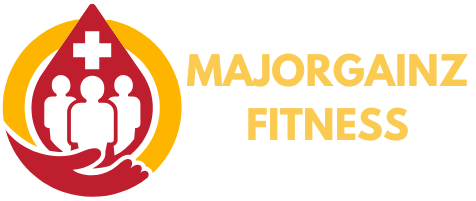March isn’t just about wearing green and celebrating spring; it’s Women’s Health Month, a time to shine a spotlight on the unique health needs of women everywhere. This month, it’s all about empowerment, education, and maybe a little bit of chocolate—because who said health can’t be sweet?
Table of Contents
ToggleOverview of Women Health Month
March serves as Women’s Health Month, a dedicated time to raise awareness about women’s health issues. This month encourages discussions surrounding topics like reproductive health, mental wellness, and prevention of diseases that primarily affect women. Various organizations and health advocates promote education and resources aimed at improving women’s health outcomes.
Events throughout March highlight the importance of screenings such as mammograms and gynecological exams. These screenings play significant roles in early detection and proactive health management. Additionally, many programs focus on mental health awareness, addressing the emotional and psychological challenges women face.
Empowerment stands as a central theme of Women Health Month. Activists and health professionals emphasize that informed women can make better choices regarding their health. Education campaigns often feature workshops, webinars, and community health fairs to engage women and share vital information.
Enjoyment in health is also a focus, suggesting that taking care of oneself can include small pleasures. Celebrating wellness through engaging activities such as fitness classes and nutritional workshops makes health more approachable. Consequently, Women Health Month cultivates a spirit of self-care, inviting women to prioritize their health while indulging in enjoyable experiences.
Overall, Women Health Month serves as a crucial reminder of the unique health needs of women. Collaboration among healthcare providers, community leaders, and individuals is essential for fostering positive health changes.
Importance of Women Health Month
Women’s Health Month plays a critical role in addressing the distinctive health needs of women while promoting awareness and education on important health topics. This month provides an opportunity to empower individuals through information regarding their health choices.
Focus on Preventive Care
Preventive care remains a key focus during Women’s Health Month. Engaging women in discussions about regular screenings can lead to early detection of health issues. Statistics reveal that mammograms significantly lower breast cancer mortality rates. Fostered by community programs, annual gynecological exams increase awareness about reproductive health. Educational workshops encourage women to take proactive steps regarding their health. Access to adequate resources strengthens the commitment to preventive care among women.
Raising Awareness on Health Issues
Raising awareness about health issues is central to Women’s Health Month. Campaigns highlight the importance of understanding conditions like heart disease and osteoporosis. By sharing factual data about these health risks, organizations seek to educate women on symptoms and prevention strategies. Innovative outreach efforts target diverse communities, ensuring inclusive public health messages. Collaborations among healthcare providers and community leaders enhance the outreach effectiveness. Increased awareness ultimately promotes healthier lifestyles and informs women about crucial health resources available to them.
Key Events and Activities
Women’s Health Month features a variety of impactful events and activities designed to enhance awareness and promote healthier lifestyles.
Community Health Workshops
Community health workshops serve as vital spaces for women to gather, learn, and share experiences. Engaging topics include nutrition, exercise, and mental health strategies. Local health professionals often lead sessions, providing attendees with practical tips they can implement in daily life. Networking opportunities arise, allowing participants to connect with others who share similar health goals. Overall, these workshops foster community support while highlighting the importance of proactive health management.
Campaigns and Initiatives
Various campaigns and initiatives work to amplify women’s health awareness during the month. Social media drives feature health education messages, targeting diverse populations effectively. Organizations promote regular screenings and health check-ups through eye-catching graphics and testimonials. Public health partnerships enable wide-reaching distribution of informative materials. Innovative approaches help bridge gaps in knowledge, fostering conversations about critical health issues, such as reproductive rights and chronic disease prevention. These initiatives ensure that more women understand their health needs and feel empowered to take action.
Health Topics Highlighted
March serves as a time to focus on various health topics affecting women, aiming to enhance understanding and foster positive changes. Significant themes include reproductive health and mental wellness, both crucial for comprehensive health management.
Reproductive Health
Reproductive health emphasizes the importance of regular screenings. Annual gynecological exams are vital as they help identify issues early. Conditions such as cervical cancer and sexually transmitted infections often go unnoticed without proper testing. Engaging women in conversations about contraception and fertility contributes to informed decision-making. Organizations provide resources to assist women of all ages with reproductive health education. Awareness campaigns highlight the necessity of discussing menstrual health and menopause, reducing stigma and improving understanding.
Mental Health and Wellness
Mental health remains a fundamental aspect of overall well-being. Awareness initiatives stress the relevance of mental health screenings, particularly in postpartum periods and during menopause. Incorporating mental wellness into daily routines enhances life quality. Exercises like yoga and meditation promote resilience and stress management. Access to mental health resources and support groups fosters community engagement, enabling women to share experiences. Empowering women through education about anxiety and depression encourages them to seek help when needed. These initiatives aim to remove barriers, making mental wellness a priority for all women.
Women’s Health Month is an essential time for raising awareness about the unique health needs of women. It emphasizes empowerment through education and community engagement. By prioritizing discussions around reproductive health and mental wellness women can take charge of their health journeys.
The month encourages participation in events that promote preventive care and regular screenings. This proactive approach can lead to early detection and better health outcomes. As women come together to share experiences and resources they foster a supportive environment that benefits everyone.
Celebrating Women’s Health Month not only highlights individual well-being but also strengthens community ties. Each initiative and conversation contributes to a healthier future for women everywhere.




